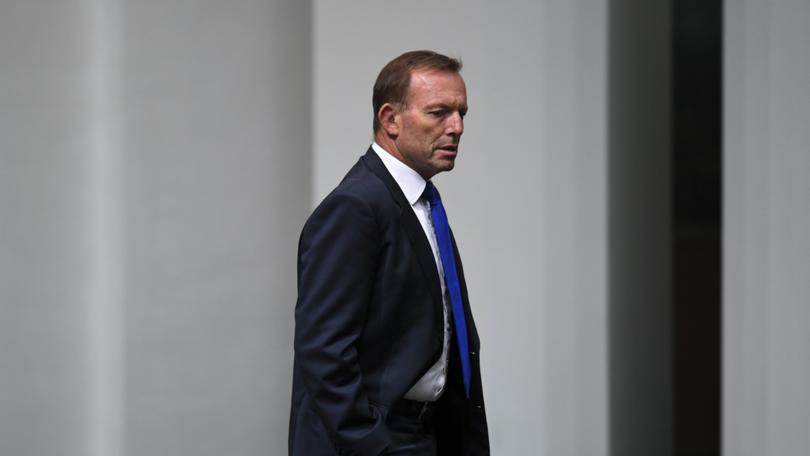Tony Abbott blames ‘unelected and unaccountable’ bureaucrats for his Government’s failings in Canada warning
Former Prime Minister Tony Abbott has taken aim at ‘unelected and unaccountable’ bureaucrats for his Government’s failings, claiming he was ‘thwarted by a leftist establishment’.

Former Prime Minister Tony Abbott has taken aim at “unelected and unaccountable” bureaucrats for his Government’s failings, claiming he was “thwarted by a leftist establishment” as he cautioned conservatives to learn from his experience.
Writing for the Canadian newspaper National Post, Mr Abbott - who served as Australia’s leader from 2013 until he was ousted by Malcolm Turnbull in 2015 - reflected on what he would have done differently.
He said Pierre Poilievre - leader of Canada’s Conservative Party who is tipped to replace increasingly unpopular Justin Trudeau at this year’s election - should “avoid the traps my Government fell into”.
Sign up to The Nightly's newsletters.
Get the first look at the digital newspaper, curated daily stories and breaking headlines delivered to your inbox.
By continuing you agree to our Terms and Privacy Policy.“Across the Anglosphere, recent conservative governments have tended to be in office but not really in power - either because they lacked an agenda of their own, or because the agenda they had was thwarted by a leftist establishment,” Mr Abbott wrote.
“Winning an election on a promise to be different, and subsequently having to make excuses when not enough changes, is the trap to be avoided by every centre-right political movement on the verge of victory.”
Reflecting on his short-lived Government, Mr Abbott said he had started strong by “stopping a wave of illegal immigration and by repealing a carbon tax and a mining tax” before he came up against unmovable roadblocks.
“Senate obstruction sabotaged its first, economically reforming budget and internal policy difference then led to a revolving door prime ministership,” he lamented.
“If the clock could be turned back, I would have insisted that all my frontbenchers provide a detailed blueprint of what needed to change in order to make a difference in their portfolio area, and explain how their proposed changes reflected our ‘smaller government, bigger citizen’ political instincts. I would have insisted that at least a version of their thinking be made public well before an election. That way, the bureaucracy — or at least that section of it still motivated by traditional Westminster ideals of impartial public service — would have had more guidance in policy formation.”
He said he also would have made incoming ministers “less susceptible to being ‘snowed’ by unelected and unaccountable officials”, offering the example of the Safe Schools program.
Mr Abbott said the LGBT-focused anti-bullying program, which expanded nationally in 2013, had been the result of ministers “captured by bureaucrats”.
“This is where incoming ministers need to have thought through all the key issues they are likely to deal with and be sufficiently robust to interrogate and stand up to officials urging caution or assuring them that the ‘experts’ know best,” he said.
He wrote that if he had his time again: “I would have worked in advance with like-minded institutes to prepare more detailed plans for key incoming ministers, rather than have them largely directed by the bureaucracy based on sometimes thin pre-election policy announcements”.
He suggested it was important for the incoming Canadian government to “have the strong and explicit mandate for change that only detailed policy proposals can generate”.
“The winds of change are sweeping across the Anglosphere. Pierre Poilievre can ensure that this will mean more than voting out the failed incumbent; it will mean delivering a new agenda for a better Canada,” he wrote.

